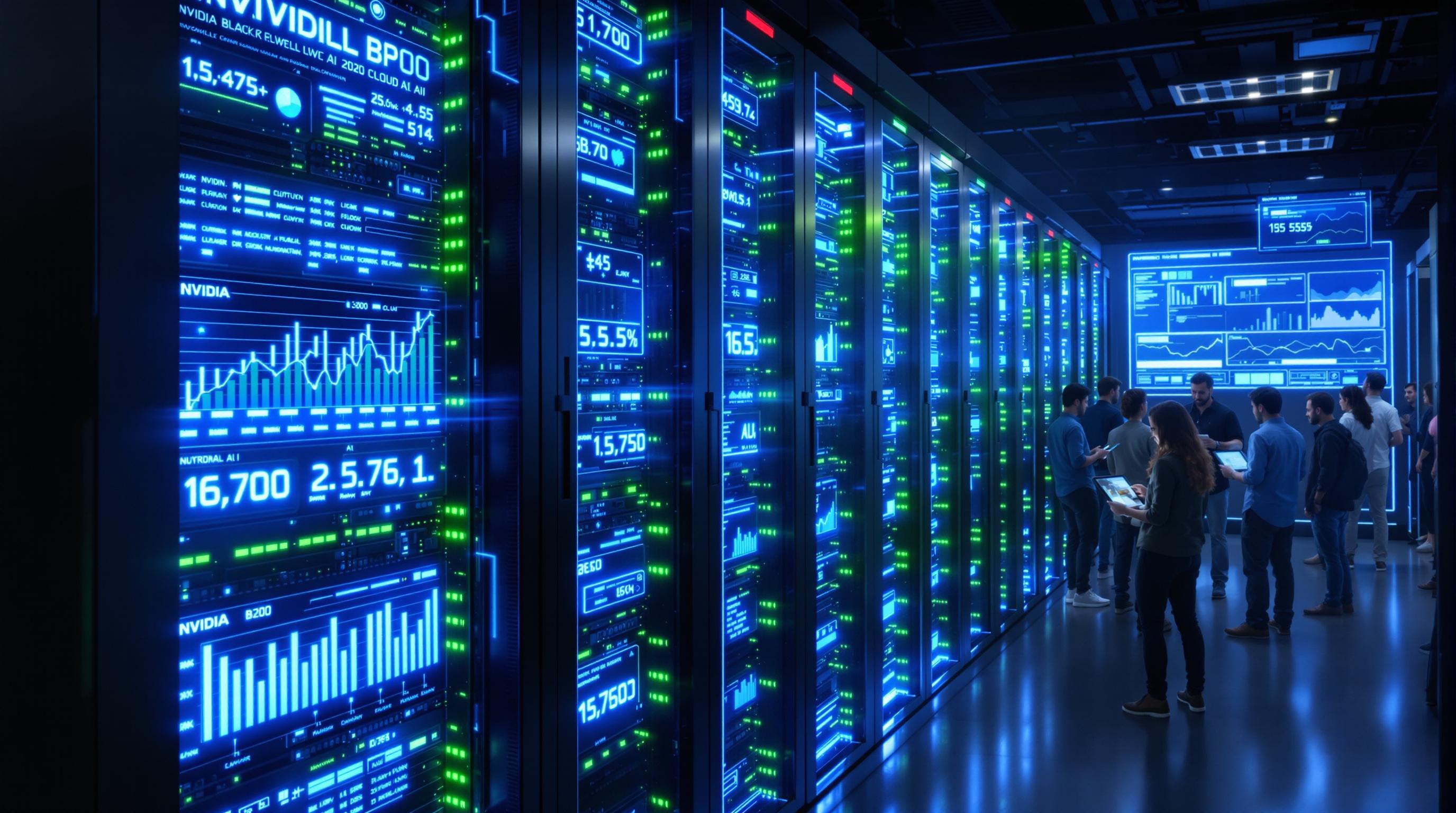⚡ Quick News
- OpenAI's $40 Billion Investment to Boost AI Research OpenAI recently received a substantial financial boost with a $40 billion investment led by SoftBank. The influx of capital will enhance AI research and development capabilities, particularly in computing infrastructure.
- Cassava and NVIDIA Launch Africa's First AI Factory Africa takes a significant step in technology with the introduction of its first AI factory by Cassava and NVIDIA. These GPU hubs aim to reduce dependency on expensive foreign cloud services and spur local innovation.
- OpenAI and Anthropic Compete for Educational Influence As educational tools evolve, OpenAI and Anthropic are providing free AI resources to college students. This strategic move aims to establish early loyalty and capture future market share among young users.
- OpenAI's Image Tool Generates 700 Million Images in Debut Week OpenAI's newest image generation tool has rapidly gained popularity, with over 700 million creations in its first week. The feature's success reflects a growing interest, particularly in markets like India.

The United Nations Conference on Trade and Development (UNCTAD) has released a landmark report that projects a dramatic transformation in global labor markets due to artificial intelligence within the next decade. This analysis indicates that about 40% of jobs worldwide could experience significant upheaval as automation boosts productivity and leads to workforce displacement. The report highlights a potential $4.8 trillion market growth for AI technologies by 2033, positioning AI as a dominant force in a $16.4 trillion frontier technology economy. However, this growth comes with challenges, particularly for advanced economies where over 60% of knowledge sector jobs are vulnerable to AI integration, and developing countries that might see reduced labor-cost advantages.
Key Highlights:
Key Highlights:
- AI technologies could create a $4.8 trillion market by 2033, equivalent to Germany's GDP.
- Advanced economies see 60%+ of knowledge sector jobs at risk.
- A $2.1 trillion investment plan is recommended to reskill 120 million workers.
- Disparities between nations might widen, exacerbating existing income gaps.
- Saudi Arabia's example of combining academic training with factory simulations is highlighted as a successful strategy.
- Specific industries like journalism and legal professions foresee significant job risk.
If you're enjoying Nerdic Download, please forward this article to a colleague. It helps us keep this content free.

As a critical deadline approaches, the United States is maneuvering towards a comprehensive ownership overhaul of TikTok's U.S. operations from its Chinese parent company, ByteDance. With a deadline set for April 5, a major acquisition deal is in motion, spearheaded by a consortium that includes Andreessen Horowitz and Blackstone. This potential deal proposes that U.S. investors control 80% of TikTok's local operations, leaving ByteDance with a minority non-voting stake and Oracle handling U.S. user data. Nonetheless, this transaction faces complications from China, where authorities are resistant to the transfer of TikTok’s algorithm, a pivotal asset under Chinese export restrictions.
Key Highlights:
Key Highlights:
- The deal suggests U.S. investors will own 80% of TikTok's U.S. operations.
- ByteDance retains a 20% stake but without voting rights.
- Oracle is proposed as the manager of critical U.S. user data systems.
- Controversy over algorithm transfer persists, with possible licensing discussions.
- Alternative bids from Amazon and crypto-backed Zoop add complexity.
- The outcome could influence U.S. political dynamics around tech and security.

Google is on the verge of completing a strategic deal to rent NVIDIA's state-of-the-art Blackwell B200 AI chips from CoreWeave to boost its cloud's computational power. These chips, which are the latest in AI-focused GPUs, offer immense capabilities, especially in training large language models. Google's approach to leasing these through CoreWeave, a specialized provider, enables it to bypass NVIDIA's current supply issues while still accessing advanced hardware essential for expanding its AI services. This move is part of a broader strategy to enhance Google's cloud infrastructure, underscoring its ambition to compete aggressively against rivals like AWS and Microsoft Azure.
Key Highlights:
Key Highlights:
- NVIDIA's Blackwell chips offer up to 20 petaflops of FP4 performance.
- The deal allows Google to circumvent NVIDIA's supply constraints.
- CoreWeave provides flexibility and helps avoid large capital expenditures.
- Google aims to enhance its AI services, including its Vertex AI platform.
- The strategy includes partnerships with companies like Deutsche Telekom.

OpenAI has unveiled PaperBench, a robust evaluation framework designed to test AI systems' abilities in replicating advanced machine learning research. This benchmark tasks AI with reproducing seminal research papers presented at the 2024 International Conference on Machine Learning. Through this initiative, AI agents attempt to duplicate complex research outcomes, a process traditionally demanding substantial human effort. PaperBench’s assessment measures AI replication against precise criteria developed in collaboration with original study authors to ensure rigorous standards. Current results indicate that AI still lags behind human researchers; however, the benchmark provides valuable insights into AI capabilities and shortcomings.
Key Highlights:
Key Highlights:
- PaperBench evaluates AI on 20 significant research papers from ICML 2024.
- The framework includes 8,316 gradable tasks with hierarchical rubrics.
- OpenAI uses a specialized LLM judge for validation tests.
- Top AI replication scores reach only 21%, below human benchmarks.
- Developers can use PaperBench Code-Dev to assess code structure cost-effectively.
🛠️ New AI Tools
- Devin 2.0 - AI Software Engineer Cognition's Devin 2.0 allows autonomous handling of 80% of coding tasks, facilitating focus on creative aspects. It supports multiple AI agent operations for enhanced project management.
- Adobe Premiere Pro's AI Video Extender Adobe's Premiere Pro introduces the Generative Extend tool to automatically lengthen video and audio clips in 4K. This tool utilizes AI for seamless clip extensions and creative flexibility.
- Scale AI's Model Evaluation Tool Scale AI's new Evaluation tool runs thousands of benchmark tests to identify and address model weaknesses. It boosts performance by suggesting necessary data to fill capability gaps.
- Anduril's Seabed Sentry Spy Robot Anduril's Seabed Sentry is an AI-powered robot designed for oceanic depths. It acts as a stealthy maritime spy, suited for underwater reconnaissance missions.
.svg)




